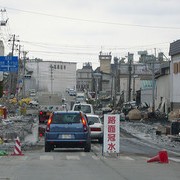Archive | October, 2012
Governance and public sector management
 Industry and trade
Industry and trade
 Infrastructure
Infrastructure
 Governance and public sector management
Governance and public sector management

Indonesia’s fuel subsidies benefit the rich far more than the poor

Although it is widely considered to be an ineffective policy, a number of developing countries offer universal fuel subsidies. However, the prolonged implementation of fuel subsidies creates a misallocation of resources as a subsidy targets the fuel rather than the consumer. Consequently, fuel subsidies benefit the affluent more than the poor. A number of countries implement fuel subsidies, including Algeria, the People’s Republic of China, Ecuador, Egypt, Indonesia Iran, Iraq, Malaysia, Nigeria, Russia, Saudi Arabia, Thailand, and Venezuela. Granado et al (2010) reported that in countries that have subsidized fuel, on average, the top income quintile consumed about six times more subsidized fuel than the bottom quintile.
PRC and India: pursuing the same approach to free trade agreements?

Deep free trade agreements (FTAs) are key to trade-led growth in Asia. Deep FTAs can support a comprehensive regional agenda for liberalization covering reductions in barriers to goods and services trade as well as opening new areas beyond the current purview of WTO negotiations (like investment, trade facilitation, competition, government procurement and intellectual property). Deep agreements can also help lock in structural reforms at national-level and promote implementation of second generation reforms. Accordingly, deep FTAs are useful for opening markets and removing obstacles to the spread of production networks throughout Asia and the Pacific. The depth of FTAs among Asia’s developing giants—the People’s Republic of China (PRC) and India—is a topical issue.
Japan’s post-disaster growth strategy

The Great East Japan Earthquake on 11 March 2011 was the biggest earthquake recorded in Japanese seismic history, and the fourth largest recorded in the world. The scope of the triple disaster consisting of an earthquake, a tsunami, and a nuclear accident, far exceeded that of the Hanshin Earthquake of 1995. The repercussions of this disaster spread far beyond the geographical areas directly affected. For example, electric power supply capacity in the Kanto area, which accounts for about 40% of Japanese gross domestic product (GDP), fell at one stage by about 40% from the normal peak—a severe constraint on economic activity, and the supply of nuclear-generated electric power has largely been cut off since then. Production supply chains were significantly disrupted, not only in Japan, but all over Asia, although they recovered surprisingly rapidly.
G20 membership: horses-for-courses

The G20 leaders group achieved several significant examples of international economic cooperation in the first few meetings during the global financial crisis in 2008 and 2009. In the fraught crisis atmosphere, the G20 discussion encouraged bolder fiscal expansion, discouraged trade protectionism, spurred the world’s financial regulators into action to re-write the inadequate rules, and drew attention to the antiquated governance structure of the International Monetary Fund (IMF). With the immediate threat of global depression averted and the eurozone crisis not amenable to a global approach, many commentators observe that more recent meetings have lost a sense of urgency and purpose. This group has been successfully established as the paramount international economic coordination body (taking over that role from the G7 and G8) with a far more representative membership, but with the urgency of the immediate crisis gone, critical attention is focusing on the G20’s composition and agenda.


Search
Subscribe / Connect to Asia Pathways
Subjects
- Accelerating Progress in Gender Equality
- Addressing Remaining Poverty and Reducing Inequality
- Agriculture and natural resources
- Capacity development
- Climate change
- Economics
- Education
- Energy
- Environment
- Finance and Innovation
- Finance sector development
- Gender
- Globalization and Economic Stability
- Globalization, Environment, and Climate Change
- Governance and public sector management
- Health
- Human Capital Development for Inclusive Growth and Shared Prosperity
- Industry and trade
- Information and Communications Technology
- Infrastructure
- Making Cities More Livable
- Miscellaneous
- Population
- Poverty
- Private sector development
- Promoting Rural Development and Food Security
- Regional cooperation and integration
- Sanitation
- Social development and protection
- Strengthening Governance and Institutional Capacity
- Subjects
- Transport
- Uncategorized
- Urban development
- Video Blog
- Water
Recent Posts
- Harnessing Energy Transition to Power Rural Development and Female Empowerment
- The Promise and Perils of Mother Tongue-Based Education
- From Crisis to Resilience: The Evolution of the Banking Sector in Asia and the Pacific
- Tariffs on the Table: What Could Be Asia’s Next Move?
- Investing in Childcare a Win for Women and the Economy




Recent Comments